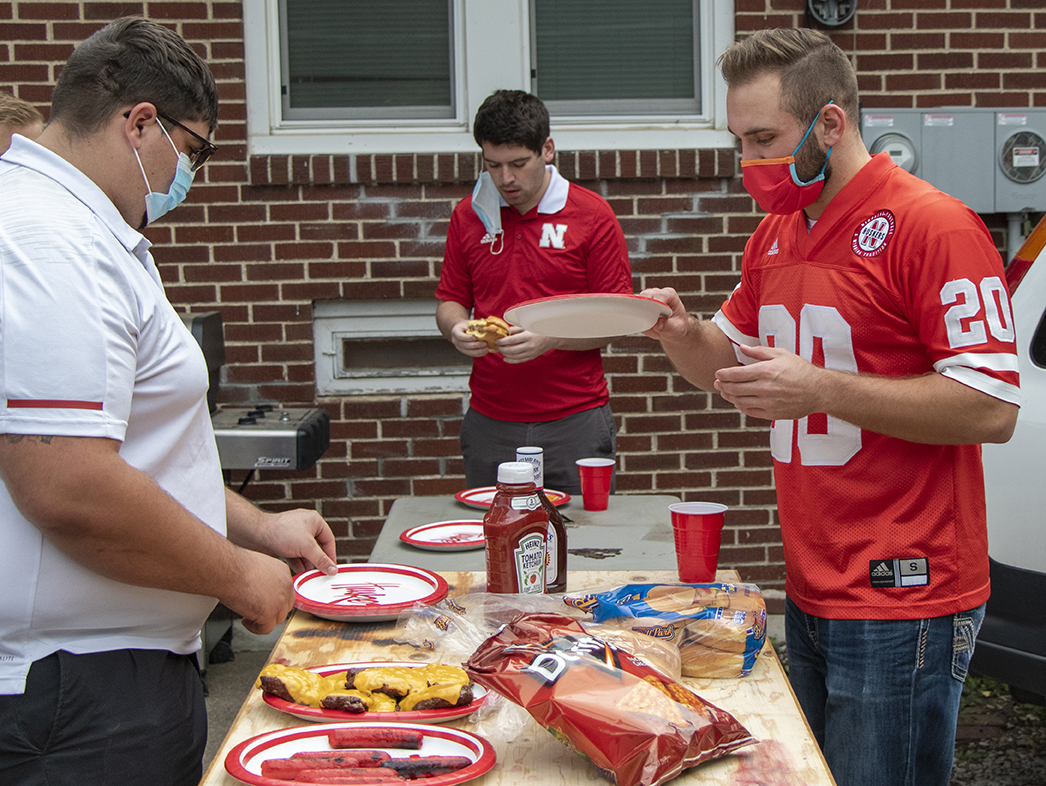
Archived Story: This article is part of our newsletter archives. It has
been preserved for reference, but the information may no longer be current.
With vaccines now available to everyone ages 12 and up, we are rounding a corner in the pandemic. And just as vaccines are reaching more people, the weather is making it perfect to get together outside. New guidelines from the Centers for Disease Control and Prevention states that anyone fully vaccinated can now resume activities without wearing a mask or physically distancing, except where required by law or by local businesses and workplaces.
Despite these new guidelines, Heather Eberspacher, MD - medical director at the University Health Center - encourages students to still use caution.
Here are six questions to consider as you decide to join a gathering or event.
- Are you fully vaccinated?
Are you fully vaccinated? If you want to gather with other fully vaccinated people, great. If you are off campus, you don't have to wear face coverings or physically distance. If you are on campus, you must continue to follow university policy and maintain pandemic prevention measures, which include wearing a face covering.
If you're not fully vaccinated, your risk of getting and spreading COVID-19 is much higher. Continue to wear a face covering when you're around people you don't live with. - Who do you live with?
If you live with people who are immunocompromised or at higher risk for severe COVID-19 (over 65 years old, obese, underlying cardiorespiratory disease, diabetes, etc.), your approach to events may change to protect them. - Will you be outdoors or inside?
The coronavirus is much more likely to spread indoors rather than outdoors. The odds of catching COVID-19 indoors are 18.7 times higher than in open-air environments, according to a study cited by the CDC.
If the event is indoors, is it in a big space (better for distancing) or a small room? Will windows or doors be open (to increase ventilation)? In addition, unvaccinated people should continue to wear face coverings indoors and practice social distancing of at least 6 feet. Fully vaccinated people should wear face coverings indoors around unvaccinated people. - How many people will be there?
Everyone, even those who are fully vaccinated, should use caution when considering attending medium or large gatherings. Unfortunately, vaccines are not 100% effective and even fully vaccinated persons continue to have a small risk of illness. If you attend a crowded outdoor event, like a live performance, parade or sports event, wear a face covering. - How long will you be there?
Time matters, especially indoors. The longer you stay in a space, the higher the risk. The CDC defines a COVID-19 exposure as someone who has been within 6 feet for a total of 15 minutes or more. - How do you feel about going?
If you're not ready to do some things, that's OK. The pandemic is still here and we have a ways to go before reaching herd immunity. Playing it safe is smart. If you don't feel comfortable going to an event, you can politely reply with something like:
• While I'd love to see you, I won't be able to make it
• That won't work for me right now
• With cases still pretty high, I'd rather meet up later when it's safer
Vaccines are saving lives and making it safer to gather. Find out how to schedule an appointment in Nebraska by visiting the University Health Center's COVID-19 vaccine education webpage.